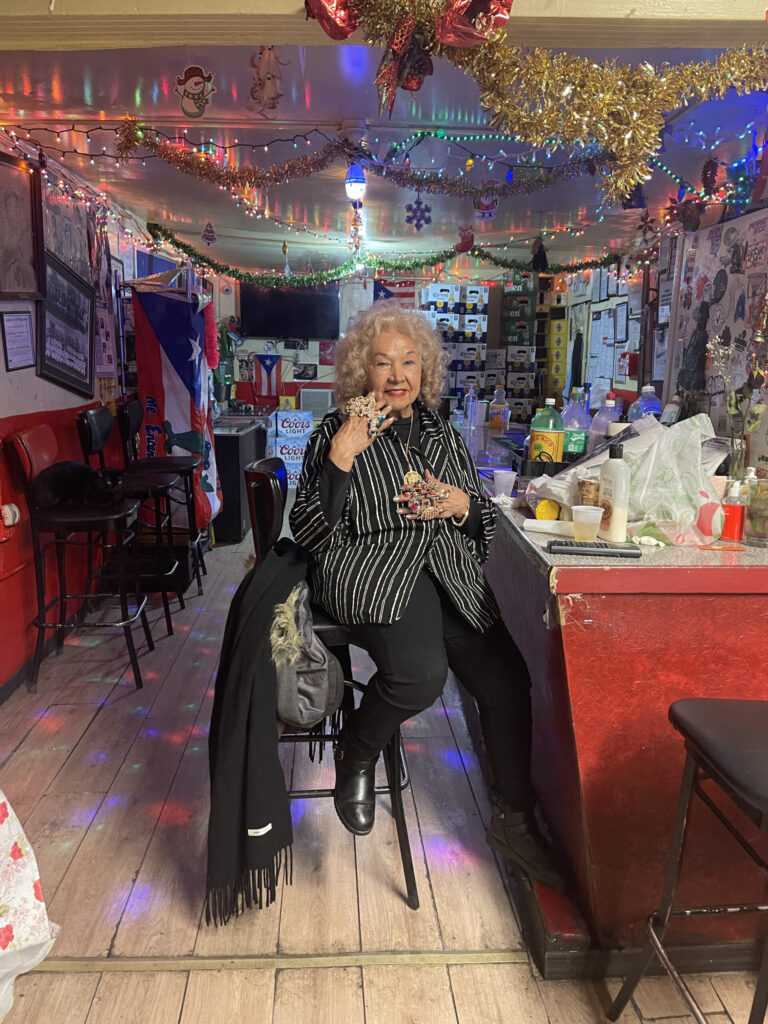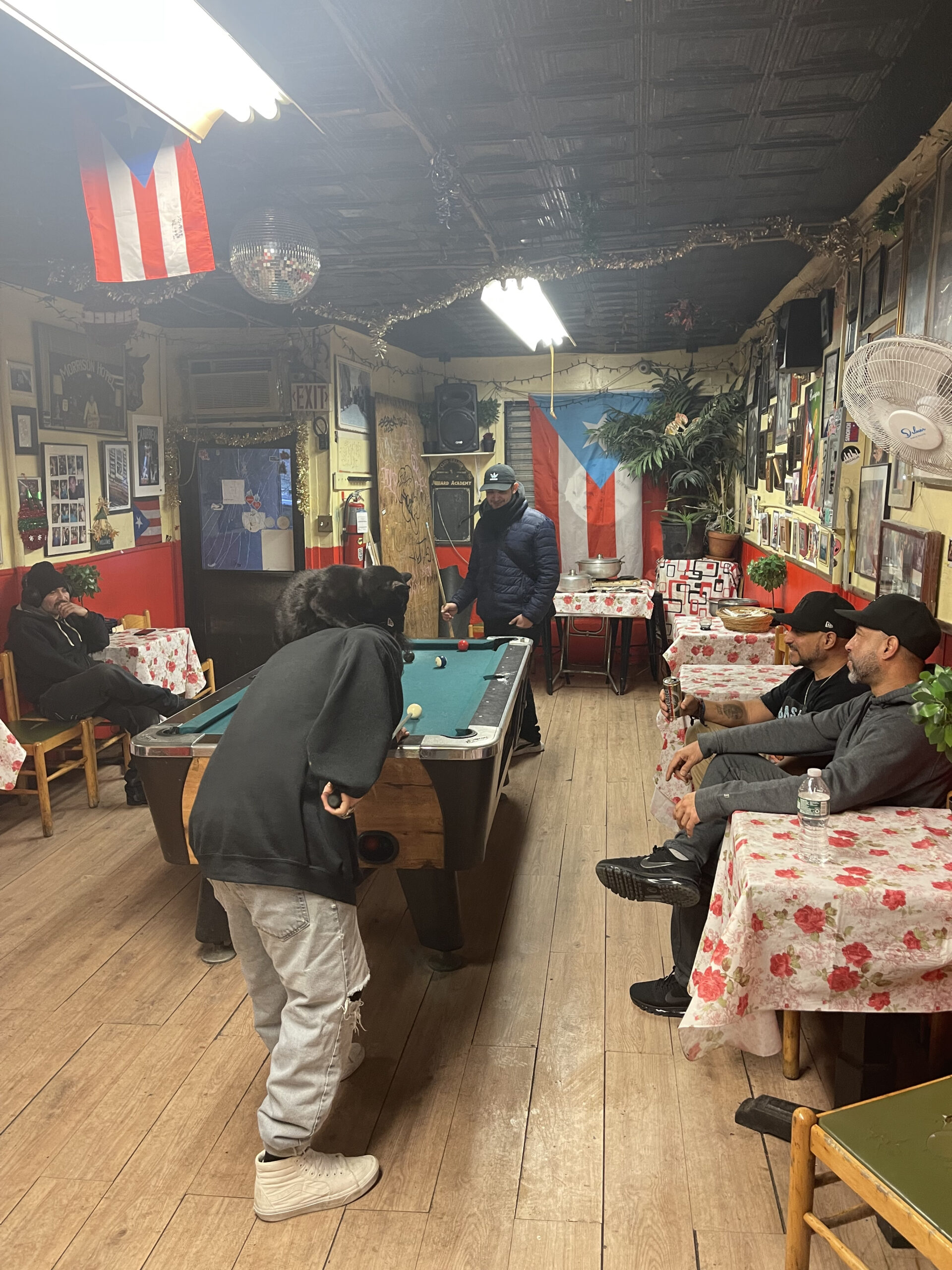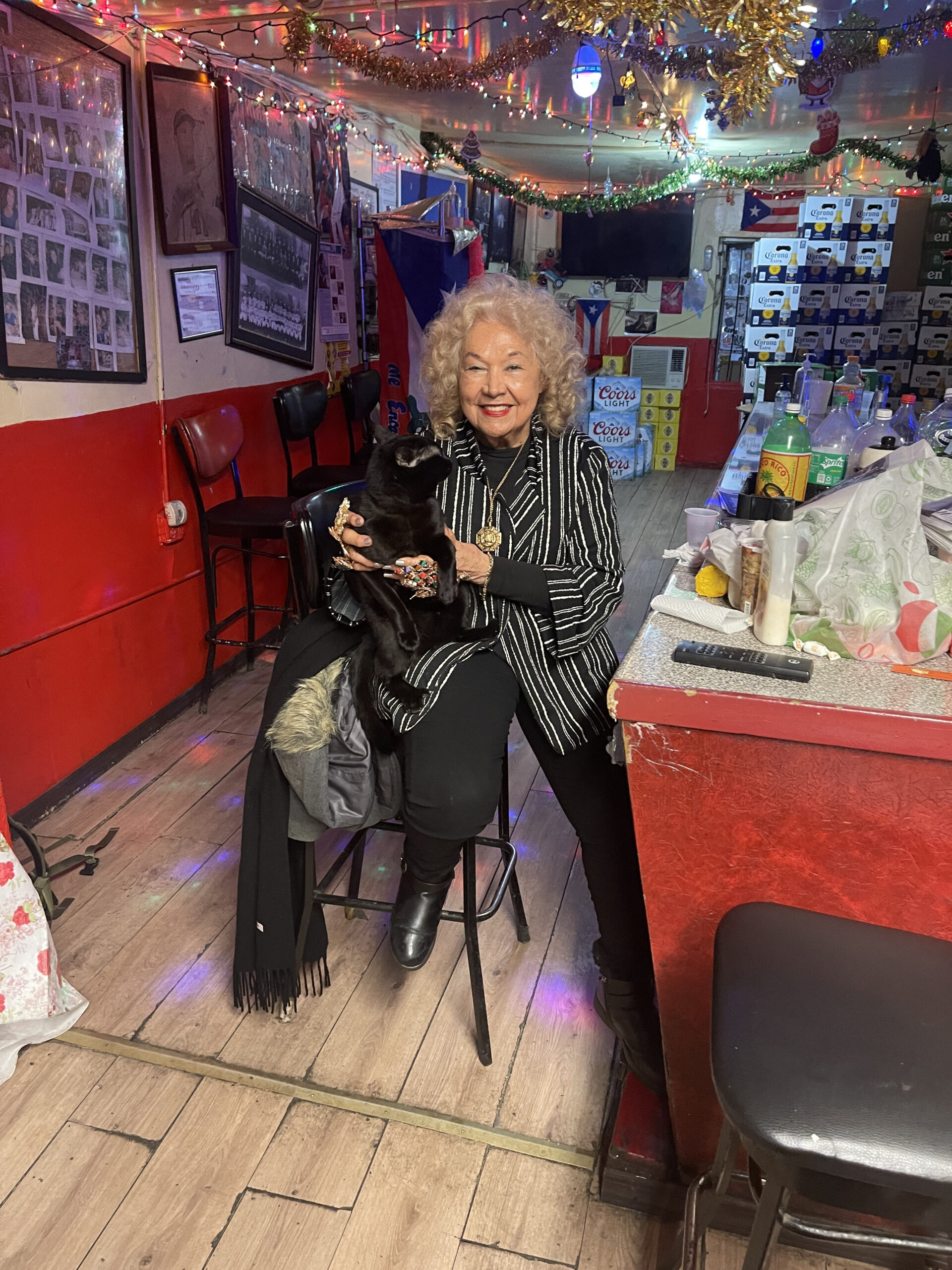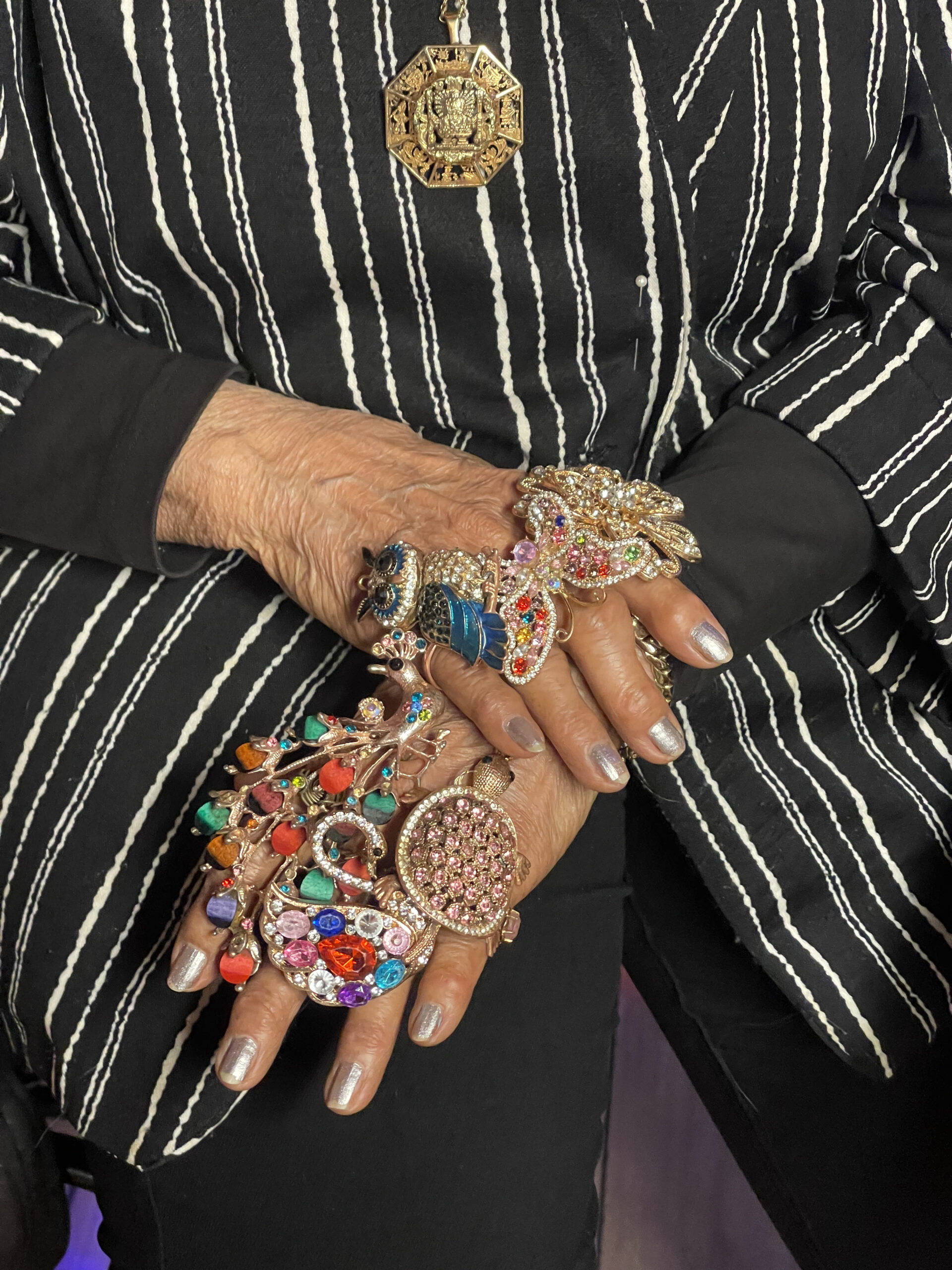Maria Antonia Cay—known in Brooklyn as Toñita—opened the Caribbean Social Club back in the ’70s. Those days, Williamsburg was definitively called Los Sures; glass and steel high-rises, privately-owned parks, Apple Stores and coffee chains had yet to shoulder in. Gentrification hit the neighborhood harder than most, skyrocketing the rent for Cay’s fellow Puerto Ricans. A saturated, thrumming community got pushed down and scattered out.
That’s what makes Cay’s social club—Toñita’s, to its regulars—all the more precious. It’s the last of its kind in New York City: a refuge for Latin American transplants seeking a game of pool, a cheap drink, a free meal, a good party, a sense of kitsch, a sense of home. For Cay, Toñita’s is more than just a business. “I don’t need money for nothing,” she says. “People feel good when they come.” Really, the club is life as the matriarch knows it—a space she’ll fight for forever, for her people, by her people. Last month, she headed down from her apartment upstairs to talk baseball, Bad Bunny, Coney Island, and her cult of personality.
———
MORGAN BECKER: I’d love to hear about how the club began.
MARIA ANTONIA CAY: We started a baseball club before. Then we had to leave the baseball behind and we switched to [just a social] club.
BECKER: When you came to New York, did you have this plan in mind?
CAY: I came here when I was 15 years old and I started working right away, and I keep on working all the time. There were a lot of clubs around here, but they had to leave because the government started to take care of them, asking for permits and licenses. They couldn’t do it so they had to leave. That was in the seventies.
BECKER: What was the neighborhood like back then?
CAY: The neighborhood was good at that time because people were friendly together in this club, in this block. Sometimes we used to get in a car to Coney Island to the beach. We used to go almost every Sunday, like family.
BECKER: Is it still like that now?
CAY: No, no. No more.
BECKER: It seems like you’ve preserved that family spirit here, though.
CAY: Yeah, people feel like family because we are all together all the time. We eat together, and we have a good time.
BECKER: I’d love to hear more about the free food program you do here.
CAY: When we started the baseball club, we used to make food when people came back from the park. I make rice and beans, sometimes I make pork, sometimes I make chicken.
BECKER: Who taught you how to cook?
CAY: Myself.
BECKER: How has the club itself changed over the years?
CAY: I don’t think anything’s changed. It’s almost the same people, the same fun. In the pandemic, we were over here all the time. We never closed. All the young people came. The young people, they’re not afraid of nothing.
BECKER: And you’ve always had the parties, right? Do you work behind the bar still?
CAY: Yeah, all the time. I’m here from 3:00 to 3:00 in the morning, every Friday and Saturday.
BECKER: You don’t get tired?
CAY: I don’t get tired. No, I feel good. I feel happy because I see the people happy. They have a good time, so it’s like I’m having a good time, too. I don’t know all of them, but they know me.
BECKER: Do you have any favorite patrons?
CAY: No, no favorites. Everybody is welcome. If they behave, they are welcome.
BECKER: I see the Bad Bunny photo on the wall…
CAY: Yes, Bad Bunny.
BECKER: How was it meeting him?
CAY: It was two years ago. And Madonna and Maluma.
BECKER: Are you a fan?
CAY: She’s nice.
BECKER: Tell me about your regular customers. Is there anyone who’s come here from the start that’s still coming here today?
CAY: Oh, yes. Some people come every day. They stay for a while, they play pool, sometimes they play dominoes.
BECKER: I was asking Giovanni [Carbonell] how he got started helping you out, and he was saying you were the reason he could stay in New York. You were feeding him and taking care of him.
CAY: Yeah, and I will continue until I die. Until I die right here.
BECKER: Can you tell me about the decision to keep the prices so low?
CAY: It’s not cheap. The only thing I don’t pay is rent. I pay for a permit, I pay for everything I need to have in there. But I don’t need money for nothing. It is not business. It’s having fun, and people feel good when they come. They feel at home.
BECKER: That’s really rare. It feels like every time you go out in New York, you’ve got to spend $50.
CAY: I don’t go out often. I don’t like to travel either. Sometimes I go to Puerto Rico, but I stay maybe two or three weeks and then come back.
BECKER: Is Toñita’s like a club you’d find in Puerto Rico?
CAY: I think this is the only place like this in the whole world.
BECKER: What makes it so unique?
CAY: It’s not like going to a restaurant, it’s not like going to a bar. It’s like going to visit family.
BECKER: Do you still have family in Puerto Rico?
CAY: In Puerto Rico? Yeah. The last time I went was two years ago.
BECKER: Do you ever miss it?
CAY: No.
BECKER: How long have you lived upstairs?
CAY: I think I lived there for 54 years.
BECKER: You’re very famous for your rings. Where do you buy them?
CAY: Oh no, I make them myself.
BECKER: How do you do that?
CAY: I don’t know, but it’s easy. I forgot to put it on so you could see.
BECKER: That’s okay. What do you hope people take away from your club?
CAY: That this is the best city in the whole world!
BECKER: Do you think you’ll leave it for anyone to inherit?
CAY: I don’t know what will happen in the future, because I don’t think anybody is going to start cooking so early for people. But they always find a way.
BECKER: Do you ever play pool?
CAY: No, I used to play pool a long time [ago]. But I don’t play anymore.




